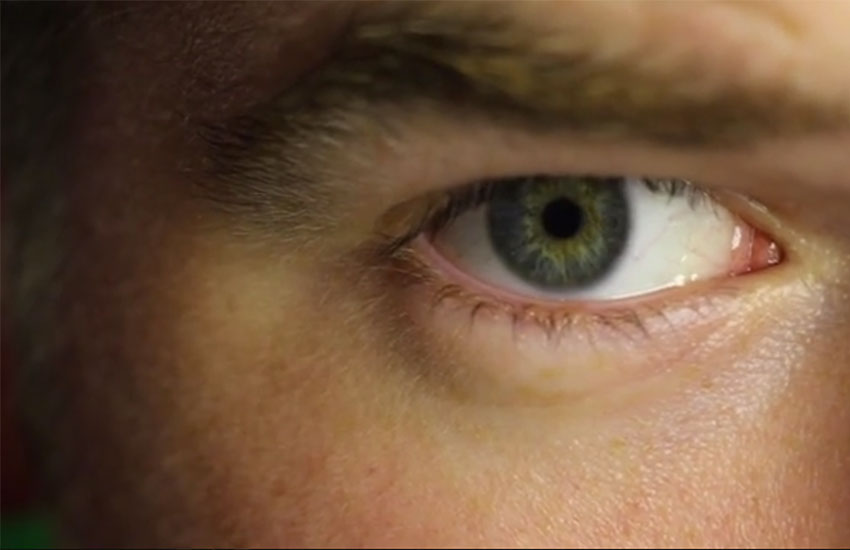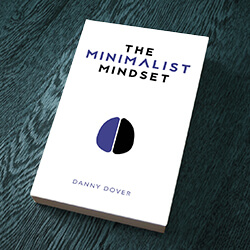Suffering from depression feels like looking into a mirror everyday and seeing a pathetic version of yourself. Every reflective surface reveals the same disturbing secret. The illness is like having earmuffs involuntarily installed on your feelings. When I was battling depression, I wasn’t sad like the name of the illness implies, instead I was numb. My passions no longer excited me, and the people in my life no longer inspired me.
At the core of it, clinical depression is a chemical imbalance in the brain. Unfortunately, the day-to-day of living with depression is not nearly that simple.
That which once made me, me, was inexplicably extinguished. The creativity and motivation that used to enable me to stand up and fight was gone, and in its place appeared hopelessness. Like a food critic who loses his tongue or a musician who loses her hearing, depression was a loss of my identity. Whereas my self doubts previously had taken the form of mental walls, my new doubts took the form of defensive castles. This mental illness knew all of my secrets and weaknesses, and it was able to control me because it was me.
However, none of those troubles were the the hardest part of dealing with the illness.
The hardest part of dealing with depression was that I couldn’t vocalize any of my internal suffering. My power to do that was also gone.
In the past, I have talked about how my Life List was the ladder I used to climb out of depression. I was asking myself bigger questions, and I used my List as a framework for finding answers. This is still true today and it is the primary force that keeps me making forward progress on a life that I am proud to be living.
But my List wasn’t the only tool I needed to overcome depression. I also used two tools that I don’t often speak about publicly – prescription drugs and professional therapy.
My depression dragged on for years longer than necessary because I was too stubborn to believe that I needed something other than myself to overcome my mental illness.
Drugs
I really don’t like drugs. Tylenol makes my head unclear, flu medicine makes me feel hollow, and recreational drugs are fun, but ultimately feel like a shortcut to something that should require more work.
When I heard that prescription drugs might help me overcome depression, I balked and actively fought the recommendation. I reasoned that I was above drugs. I didn’t need a crutch! Like I had done with all of my previous problems, I would just barrel through and solve this myself. I knew, without a doubt, that taking antidepressants would sabotage who I was. If I wasn’t going to be myself with depression, then who was I to become without it? Clearly, more chemicals couldn’t be the solution to what was already a chemical problem.
All of these excuses underestimated what I was up against. My stubbornness was a symptom of the illness, not a pathway to a solution. But to hell with anyone who tried to tell me that. They didn’t know me like I thought I knew myself.
Therapy
From the moment my parents picked up the phone to hear that I would be coming home to have dinner, they knew something was wrong. After a year of excruciating mental pain, I finally broke down.
It was the most difficult conversation of my life, but my mom and dad helped me admit that I needed to talk to someone. They volunteered themselves, but in a moment of uncommon mental clarity, I realized that I needed to talk to a third-party. My problems felt too deep-rooted to share with anyone I knew.
It took me mentally collapsing, falling to a place where I had nothing else to do but surrender, to finally get the help I needed.
The experience of talking to a therapist was exactly how I imagined it would be. I laid down on a big couch and talked to an old doctor who charged me ridiculously high hourly rates.
For the first few sessions, I talked, but didn’t really say anything. The defenses of the castles in my mind were still rising higher. The therapist asked questions and I gave short, sarcastic answers. I was sure his prodding was in all of the wrong places. I knew I was smarter than he was, and felt convinced that I was wasting time and money on something that made me feel both embarrassed and pathetic.
The Same Until It Was Different
Every New Year’s Eve I think about where I was the previous New Year’s Eve. As I envision the prior year’s scene, I internalize how much time has passed. Each time I do this, I get scared at how one-directional and fleeting life is.
My experience climbing out of depression felt the same way.
During my recovery, everything that was external seemed to remain the same. My therapist asked the same dumb questions, and I took the same useless drugs. Each new day was as numb as the previous day.
This ceaselessly continued until it didn’t anymore. Like running by a planked fence, the scene on the other side of the barrier started to flash through into my reality.
I don’t think I will ever pinpoint the day or exact experience, but at some point I turned the corner on depression. It took a long time, over two years, but eventually the unknown engine of my motivations started slowly running again.
When the machine started humming, I was ready. I channeled that mere hint of a spark into my Life List project as strongly and intensely as I could. I started small and local on my list, and with almost unmeasurable movement, I made forward progress. That tiny ember that made me feel unique and human slowly started to shine again.
Depression was the most important battle that I have ever fought. It pitted me against the only competitor that I admit I can’t defeat, myself. With the help of my family, friends, Life List, prescription drugs and therapy, I slowly built a new me. I eventually weaned myself off of the prescription drugs and therapy, but kept my prescription of self improvement.
A couple years after officially beating the mental illness, my mom called me with worry in her voice. She told me she had bad news and asked me to brace myself.
“Danny, your former therapist, Peter, died today. He had a heart attack and passed away in his office.”
I was silent.
My mom was silent.
Every secret I had told him, every private thought, every jarring realization was now irreversibly gone.
Like the mental illness itself, this news was uncomfortable and twisted. There was no longer a record of my scars.
I looked at myself in the reflection of a nearby window. I saw neither the person that I was before battling depression, nor the frightened warrior who had made it through the mental battle. Instead, I saw a new person. A better version of myself.
My healing was finally complete.








